The link between statins, atherosclerosis, and lack of vitamin K
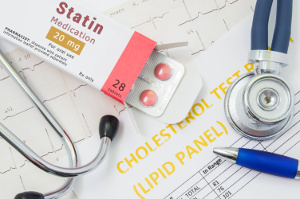 Cholesterol-lowering statins are among some of the most widely sold medical drugs. However, there is growing disagreement about their preventive effect on atherosclerosis and cardiovascular diseases, which are linked to many other factors than cholesterol levels alone. It turns out that statins also block the body’s production of vitamin K2, a nutrient that contributes to removing calcium from the bloodstream. A new study that is published in Medical Sciences concludes that atherosclerosis is more prevalent among statin users than among non-users, regardless of any cardiovascular diseases that have already been diagnosed. In other words, statins actually increase your risk of clogged-up arteries and that contradicts the traditional view. The new study supports earlier research, and it has been known for years that statins also block the endogenous synthesis of coenzyme Q10 and vitamin D, both of which are important for the heart and circulatory system.
Cholesterol-lowering statins are among some of the most widely sold medical drugs. However, there is growing disagreement about their preventive effect on atherosclerosis and cardiovascular diseases, which are linked to many other factors than cholesterol levels alone. It turns out that statins also block the body’s production of vitamin K2, a nutrient that contributes to removing calcium from the bloodstream. A new study that is published in Medical Sciences concludes that atherosclerosis is more prevalent among statin users than among non-users, regardless of any cardiovascular diseases that have already been diagnosed. In other words, statins actually increase your risk of clogged-up arteries and that contradicts the traditional view. The new study supports earlier research, and it has been known for years that statins also block the endogenous synthesis of coenzyme Q10 and vitamin D, both of which are important for the heart and circulatory system.
Read more about the link between statins, atherosclerosis, and lack of vitamin K
- Created on .









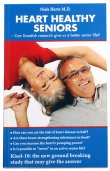

 Vitamin D is vital for normal development of the baby’s bones, cognitive skills, IQ, immune defense, and a number of other things. According to a new British study, however, a third of white infants lack vitamin D. The problem is even more pronounced in dark-skinned babies. Here, around half of them lack vitamin D. More focus is needed on pregnant women from exposed groups to help ensure that they get adequate amounts of the nutrient.
Vitamin D is vital for normal development of the baby’s bones, cognitive skills, IQ, immune defense, and a number of other things. According to a new British study, however, a third of white infants lack vitamin D. The problem is even more pronounced in dark-skinned babies. Here, around half of them lack vitamin D. More focus is needed on pregnant women from exposed groups to help ensure that they get adequate amounts of the nutrient. Selenium supports a number of different selenium-dependent proteins that are important for our energy turnover, metabolism, immune defense, fertility, and antioxidant protection. Selenium also has a special affinity for mercury and is therefore able to bind to this heavy metal and counteract its harmful impact on the brain, the nervous system, and other tissues. Once selenium is bound to mercury, however, the different selenoproteins are no longer able to use it. We are all exposed to a certain amount of mercury and that may result in a borderline deficiency of selenium. The problem is that other factors weigh in such as selenium-depleted crops because of the lack of selenium in the European farmland. What is important to realize is that mercury toxicity is insidious and certain fish such as predatory fish and whales in the upper part of the food chain contain large concentrations of mercury. However, therapeutic doses of selenium can prevent the toxic effect of the heavy metal, according to a new review article published in Scientific Research.
Selenium supports a number of different selenium-dependent proteins that are important for our energy turnover, metabolism, immune defense, fertility, and antioxidant protection. Selenium also has a special affinity for mercury and is therefore able to bind to this heavy metal and counteract its harmful impact on the brain, the nervous system, and other tissues. Once selenium is bound to mercury, however, the different selenoproteins are no longer able to use it. We are all exposed to a certain amount of mercury and that may result in a borderline deficiency of selenium. The problem is that other factors weigh in such as selenium-depleted crops because of the lack of selenium in the European farmland. What is important to realize is that mercury toxicity is insidious and certain fish such as predatory fish and whales in the upper part of the food chain contain large concentrations of mercury. However, therapeutic doses of selenium can prevent the toxic effect of the heavy metal, according to a new review article published in Scientific Research.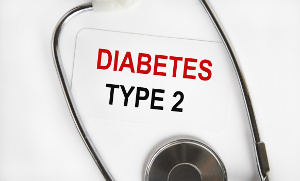 Type 2 diabetes is spreading like a bushfire. An alarmingly many people have metabolic syndrome – or pre-diabetes – which is characterized by insulin resistance, hypertension, elevated cholesterol levels and abdominal obesity (apple-shaped body). Type 2 diabetes and metabolic syndrome are associated with enormous human and socio-economic costs. In this article, we will look closer at chromium, vitamin D, magnesium, and coenzyme Q10 plus relevant diet changes to see how they can positively affect blood sugar levels, cholesterol balance, and weight control. We will also take a closer look at supplements that are able to prevent diabetic neuropathy, a disorder that can lead to amputations.
Type 2 diabetes is spreading like a bushfire. An alarmingly many people have metabolic syndrome – or pre-diabetes – which is characterized by insulin resistance, hypertension, elevated cholesterol levels and abdominal obesity (apple-shaped body). Type 2 diabetes and metabolic syndrome are associated with enormous human and socio-economic costs. In this article, we will look closer at chromium, vitamin D, magnesium, and coenzyme Q10 plus relevant diet changes to see how they can positively affect blood sugar levels, cholesterol balance, and weight control. We will also take a closer look at supplements that are able to prevent diabetic neuropathy, a disorder that can lead to amputations. According to a pilot study from Los Angeles, patients with higher blood levels of omega-3 fatty acids in their blood are 75 percent less likely to die from a COVID-19 infection. The scientists behind the study assume it is because of the anti-inflammatory properties of the omega-3 fatty acids and their ability to regulate the immune defense, which is often completely derailed in serious cases of COVID-19. The scientists also mention other nutrients with anti-inflammatory properties.
According to a pilot study from Los Angeles, patients with higher blood levels of omega-3 fatty acids in their blood are 75 percent less likely to die from a COVID-19 infection. The scientists behind the study assume it is because of the anti-inflammatory properties of the omega-3 fatty acids and their ability to regulate the immune defense, which is often completely derailed in serious cases of COVID-19. The scientists also mention other nutrients with anti-inflammatory properties.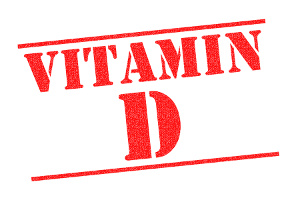 Lack of vitamin D is rather common. It increases the risk of infections and a host of serious diseases. German cancer researchers have estimated that if all Germans from 50 years and older took a daily vitamin D supplement it would prevent 30,000 cancer-related deaths annually and gain over 300,000 years of life. In addition to that, it would lead to huge reductions in public healthcare. The health-related and financial benefits of optimizing the population’s vitamin D status fits in nicely with previous research and calculations from Denmark.
Lack of vitamin D is rather common. It increases the risk of infections and a host of serious diseases. German cancer researchers have estimated that if all Germans from 50 years and older took a daily vitamin D supplement it would prevent 30,000 cancer-related deaths annually and gain over 300,000 years of life. In addition to that, it would lead to huge reductions in public healthcare. The health-related and financial benefits of optimizing the population’s vitamin D status fits in nicely with previous research and calculations from Denmark. The COVID-19 pandemic is continuing and we are currently being threatened by B117 and other mutated versions of the virus. Some people are immune, some get mild infections, and some develop life-threatening complications. A team of international scientists has tried to find out why people react so differently. It appears vitamin D deficiency plays a major role. According to a new study that is published in the science journal Endocrine in January 2021, low blood levels of vitamin D are linked to an increased risk of being hospitalized. The scientists behind the new study point to vitamin D supplements as an inexpensive and fast way to improve patients’ health.
The COVID-19 pandemic is continuing and we are currently being threatened by B117 and other mutated versions of the virus. Some people are immune, some get mild infections, and some develop life-threatening complications. A team of international scientists has tried to find out why people react so differently. It appears vitamin D deficiency plays a major role. According to a new study that is published in the science journal Endocrine in January 2021, low blood levels of vitamin D are linked to an increased risk of being hospitalized. The scientists behind the new study point to vitamin D supplements as an inexpensive and fast way to improve patients’ health. According to a new English study, increased intake of omega-3 fatty acids during the childhood years may lower your risk of developing asthma later in life but only if you have a specific gene variation. In addition, a previous Australian study reports that lower blood levels of omega-3 fatty acids in adults is associated with poorer asthma control. Diet generally seems to play a major role in the development of the disease and overweight individuals appear to benefit more than others from increasing their omega-3 intake. The big question is how much do they need to take?
According to a new English study, increased intake of omega-3 fatty acids during the childhood years may lower your risk of developing asthma later in life but only if you have a specific gene variation. In addition, a previous Australian study reports that lower blood levels of omega-3 fatty acids in adults is associated with poorer asthma control. Diet generally seems to play a major role in the development of the disease and overweight individuals appear to benefit more than others from increasing their omega-3 intake. The big question is how much do they need to take?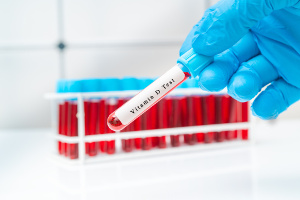 Vitamin D controls a host of different biochemical processes that are of importance to our health. Moderate vitamin D deficiency is rather common, and severe deficiency is one of the reasons why chronically ill cancer patients are put in intensive care and die within a year. Cancer patients who have been in intensive care can actually benefit from takin vitamin D supplements, according to an Austrian study that is published in Nutrients. The study supports earlier research that demonstrates different anti-cancer mechanisms in vitamin D.
Vitamin D controls a host of different biochemical processes that are of importance to our health. Moderate vitamin D deficiency is rather common, and severe deficiency is one of the reasons why chronically ill cancer patients are put in intensive care and die within a year. Cancer patients who have been in intensive care can actually benefit from takin vitamin D supplements, according to an Austrian study that is published in Nutrients. The study supports earlier research that demonstrates different anti-cancer mechanisms in vitamin D. "After about one week of taking the Q10 supplement I could feel a huge difference," says 23-year old Alan Piccini, who has been suffering from extreme fatigue and muscle aches ever since he was a child.
"After about one week of taking the Q10 supplement I could feel a huge difference," says 23-year old Alan Piccini, who has been suffering from extreme fatigue and muscle aches ever since he was a child. “Taking capsules with co-enzyme Q10 has freed me of the severe side effects of my cholesterol lowering medicine,” Mrs Franken explains.
“Taking capsules with co-enzyme Q10 has freed me of the severe side effects of my cholesterol lowering medicine,” Mrs Franken explains.